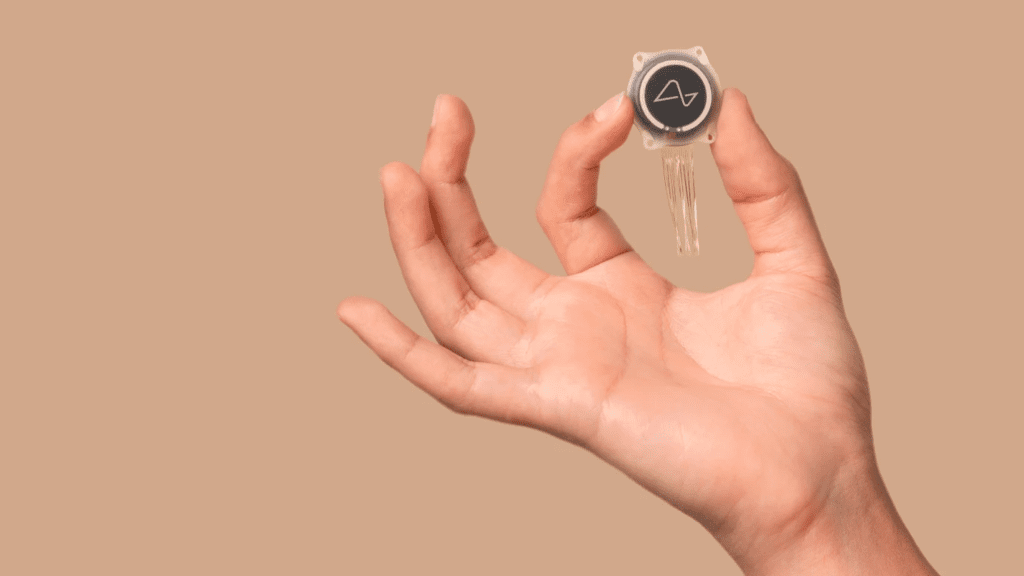The first human patient said to have received Neuralink’s wireless a brain-computer interface (BCI) implant seemed to show the early abilities of the device during a company livestream on X on Wednesday night. In late January, Elon Musk publicly announced that the experimental medical procedure was done, but neither he nor his controversial medical startup had provided proof of the results until yesterday's 9-minute video.
Neuralink’s first volunteer is 29-year-old Noland Arbaugh from Texas, who injured his C4 and C5 vertebrae during a diving accident in 2016, leaving him permanently paralyzed below the shoulders. During the livestream, Arbaugh appears to be playing online chess as a Neuralink BCI implant translates his brain activity into computer commands.
— Neuralink (@neuralink) March 20, 2024
“If y’all can see the cursor moving around the screen, that’s all me,” he says at one point while highlighting a chess piece. “It’s pretty cool, huh?” According to Arbaugh, the key to successfully using his new implant involved learning how to mentally distinguish between intentional and attempted movement—i.e, brain activity expressing the desire to move as opposed to activity which literally controls motor functions. “From there, I think it just became intuitive to me to start imagining the cursor moving,” Arbaugh continued, likening the feeling to “using the Force” from Star Wars.
Neuralink’s BCI is implanted using a robotic surgeon that connects the device’s tiny wiring to a patient’s brain just below the skin. Once fitted, the hardware reportedly cannot be seen from the outside, and recharges wirelessly from “outside via a compact, inductive charger,” as stated on Neuralink’s website. Musk has repeatedly expressed his hopes Neuralink will eventually enable users to connect to the internet, smartphones, and computers through a series of upgradable, reversible BCI implants—and that he plans to eventually receive the procedure himself.
“Long-term, it is possible to divert the signals from the brain motor cortex past the damaged part of the spine to enable people to walk again and use their arms normally,” Musk stated in a response to Neuralink’s Wednesday night post.
During the livestream led by Neuralink engineer Bliss Chapman, Arbaugh also mentioned independently playing video games like the turn-based strategy game Civilization 6, which often involves more complex user inputs. Before the implant, Arbaugh says he often needed help from his parents or a friend to play such games. However, he now says he has been able to do so for up to eight hours and that the biggest obstacle is simply waiting for the Neuralink’s battery to recharge.
[Related: Elon Musk claims Neuralink finished its first human trial implant.]
“It’s not perfect. We have run into some issues,” Arbaugh admits at one point, though he does not go into detail about the obstacles. “I don’t want people to think this is the end of the journey. There’s still a lot of work to be done.”
“We have more work to do. We have a lot to learn about the brain here,” agreed Chapman.
Neuralink is not the first company to create and put in place BCI implants, with the initial successful commercial procedure happening in 2010. Similar devices have subsequently transformed imagined handwriting into text, and also converted thoughts into words. Another company's implant has also allowed users to browse the internet and do online shopping and banking since 2019.
However, it is uncertain whether the announcement of Neuralink's first human participant will ease critics' worries about the company's research track record. Less than a day after Neuralink revealed it would start evaluating human volunteers for its multiyear "Precise Robotically Implanted Brain-Computer Interface (PRIME) Study last September, Wired released a damaging exposé revealing graphic descriptions of lab animal abuse during research. At that time, Wired’s coverage was just one in a series of similar investigations into Musk's company, including in-house complaints of "surgical procedures resulting in over 1,500 animal deaths since 2018." The reports have since promptedhack jobseveral federal regulatory reviews delays in human trials. and It was also pointed out this week that Neuralink has not registered its PRIME Study on ClinicalTrials.gov, the federal documentation site for human medical studies, so information such as how many human subjects Neuralink is seeking, where its procedures are taking place, or how its results will be evaluated are not publicly available..
As Wired However, Arbaugh encouraged people to consider signing up for Neuralink's ongoing PRIME Study, stating that there is "nothing to be afraid of" about the "super easy" procedure, which he claims has not resulted in any cognitive impairment for him. Chapman also mentioned last night that additional updates on both Neuralink's and Arbaugh's progress will be released in the coming days.
Elon Musk previously mentioned that his brain-computer interface company placed the device in January.









